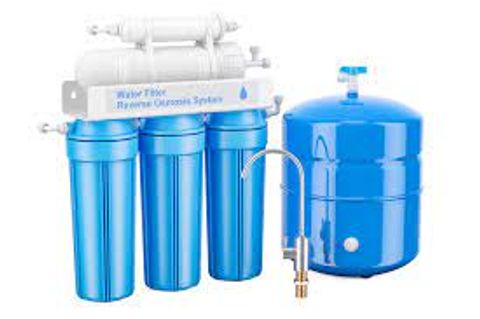Water sources — including lakes, rivers, groundwater, and municipal supplies — often contain impurities like bacteria, viruses, heavy metals, sediments, and chemicals. These contaminants may cause illness or long-term health issues if not addressed. Water filtration exists to reduce or eliminate such risks, helping ensure a reliable supply of clean drinking water.

Why Water Filtration Is Important Today
Health and safety concerns
Unfiltered water may contain harmful pathogens such as E. coli, Giardia, and Cryptosporidium, which can lead to gastrointestinal illnesses. In developing regions, contaminated drinking water remains one of the leading causes of death in children under five.
Growing pollution and climate change
Industrial waste, agricultural runoff, and aging infrastructure are introducing more pollutants into natural and public water sources. Climate change, which increases flooding and drought conditions, further exacerbates water quality issues.
Urbanization and population growth
With urban populations growing rapidly, especially in countries like India, Nigeria, and Brazil, local water systems are under increasing pressure. This growth raises the demand for improved home water filtration options and reliable municipal systems.
Accessibility and awareness
Access to clean water is a fundamental right, yet over 2 billion people still lack safely managed drinking water services globally, according to the WHO (2024). Public awareness about water quality and filtration options is critical in closing this gap.
Recent Trends and Updates in Water Filtration
Increased focus on PFAS contamination
In 2024, awareness around per- and polyfluoroalkyl substances (PFAS), also known as “forever chemicals,” grew significantly. These man-made chemicals have been found in public water systems worldwide. Research and policy actions, particularly in the U.S. and Europe, have begun pushing for PFAS-specific filtration technology in both municipal and household systems.
Rise of smart filtration systems
Recent years have seen a shift toward smart filtration devices that track water quality in real-time. These include Wi-Fi-enabled filters, mobile app integrations, and automated filter replacement alerts. Brands are incorporating AI-based sensors that provide alerts when contaminants rise above acceptable levels.
WHO and UN Water Quality Campaigns (2024)
The WHO and UN continued global initiatives in 2024 to promote safe water access in underdeveloped regions. New guidance was released to help rural communities implement low-cost bio-sand and ceramic filtration systems.
Microplastics in the spotlight
A 2024 study by the University of Newcastle estimated that humans may ingest a credit card's worth of plastic every week, much of it through drinking water. As a result, filtration systems that remove microplastics are gaining popularity.
Water Filtration Laws, Standards, and Government Programs
United States (EPA Regulations)
The U.S. Environmental Protection Agency (EPA) sets and enforces the National Primary Drinking Water Regulations (NPDWR). These rules specify limits on contaminants like lead, chlorine, and microbial organisms. States must adhere to these standards or risk federal penalties.
European Union (EU Drinking Water Directive)
Revised in 2021 and implemented through 2024, the EU's directive tightens limits on lead, chromium, and PFAS. It also requires improved transparency, mandating that citizens have access to updated information about water quality in their regions.
India (BIS Drinking Water Standards)
India’s Bureau of Indian Standards (IS 10500) guides safe drinking water norms. However, enforcement remains inconsistent across rural areas. The Jal Jeevan Mission, a government program launched in 2019, continues to provide tap water access to rural households. In 2025, the program was expanded to support household-level filtration installations.
Global Goals
Under Sustainable Development Goal 6, the United Nations aims to ensure access to water and sanitation for all by 2030. Countries are encouraged to improve filtration infrastructure and adopt policies that promote water safety.
Helpful Tools and Resources for Beginners
Water Quality Testing Kits
Home kits are available online and in hardware stores. These allow users to check for common contaminants such as chlorine, lead, nitrates, and bacteria.
NSF International Certified Filters
NSF International offers an online tool to check whether a particular filter is certified to remove specific contaminants. Visit: nsf.org
CDC Safe Water Systems Guide
The Centers for Disease Control and Prevention (CDC) provides resources on simple water treatment systems for households, including chlorination, filtration, and safe storage methods. Visit: cdc.gov/safewater
Mobile Apps
-
WaterSmart – Tracks local water quality reports and sends alerts.
-
FilterGuide – Helps users select filters based on local water data and contaminants.
-
Aquasafe – Offers real-time updates on boil water advisories and filter life estimates.
Filtration Technology Comparison Table
| Filtration Method | Removes | Common Use | Cost Level |
|---|---|---|---|
| Activated Carbon | Chlorine, VOCs | Pitchers, faucets | Low |
| Reverse Osmosis | Salts, Lead | Under-sink systems | Medium |
| UV Purification | Bacteria, Virus | Whole-home, hospitals | Medium |
| Ceramic Filters | Sediment, Bacteria | Gravity filters | Low |
| Ion Exchange | Hardness, Nitrates | Water softeners | Medium |
Frequently Asked Questions
1. What’s the difference between water purification and water filtration?
Water filtration refers to the removal of particles and impurities through a physical barrier, such as a mesh or activated carbon. Water purification goes further by removing or killing microbes through chemical or UV treatment.
2. How do I know if my tap water needs filtering?
Check with your local water supplier, which is required to provide an annual water quality report. You can also use a home testing kit to detect specific contaminants like lead, chlorine, or bacteria.
3. Which type of water filter is best for home use?
It depends on your water source and specific contaminants. For most households, a combination of activated carbon and reverse osmosis offers comprehensive filtration. If you're mainly concerned about microbes, UV purification may be more suitable.
4. Are bottled water and filtered tap water the same?
Not necessarily. Bottled water may come from natural or filtered municipal sources, but it’s not always better than filtered tap water. In fact, home filtration is often more cost-effective and environmentally sustainable.
5. How often should I change my water filter?
Filter replacement depends on the system and usage. Pitcher filters may need replacement every 2–3 months, while reverse osmosis systems can last 6–12 months. Always follow the manufacturer’s guidelines.
Conclusion
Clean and safe drinking water is essential for a healthy life, and understanding water filtration is the first step toward achieving it. Whether you rely on municipal water or private sources, knowing what contaminants may be present and how to effectively remove them can protect your health and that of your family. With growing concerns over pollutants like microplastics, heavy metals, and bacteria, water filtration is no longer optional—it’s a critical part of modern living. By staying informed about the latest technologies, local water quality, and available tools, individuals and communities can make smarter, safer choices about the water they consume every day.






